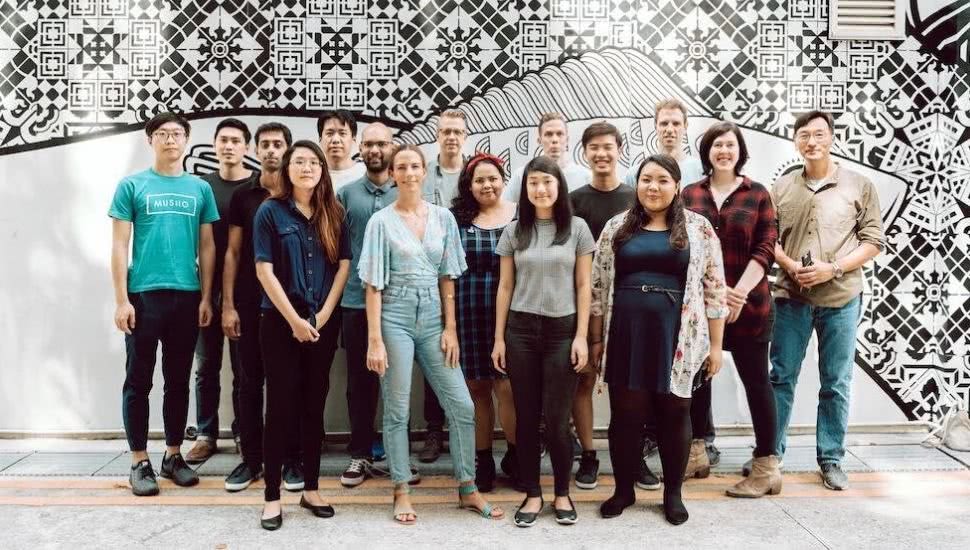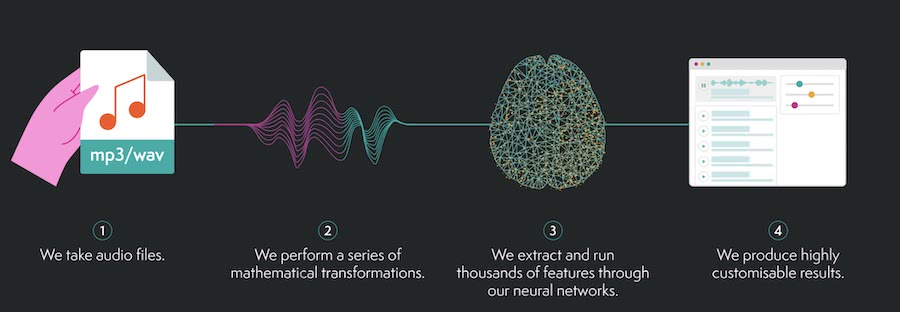Musiio use AI to tag the entire Overcoast music catalogue [EXCLUSIVE]
![Musiio use AI to tag the entire Overcoast music catalogue [EXCLUSIVE]](https://images-r2.thebrag.com/tmn/uploads/2019/11/overcoast.jpg)
The sync sector just got a little stronger.
Musiio, a machine learning specialist which helps digital entertainment companies with discovery and creation, has partnered with New York-based Overcoast, an award winning music and sound house, TIO can exclusively reveal.
Overcoast’s past work includes projects with Google, ESPN, Coca-Cola, Adidas, and Lyft where it used its network of composers in studios in Richmond, VA and London, UK to create music for broadcast, film, online and more.
Musiio and Overcoast will use AI software to improve speed and efficiencies, and make the most out of Overcoast’s impressive in-house library of music.
Colin Beckett, Partner & Head of Production at Overcoast, said:
“Catalogue management becomes increasingly hard as companies grow their libraries, and we are no exception. Manually tagging tracks becomes tedious at scale, and is prone to listener fatigue. At Overcoast, we always believe that if there’s a way to automate the nuts and bolts, it leaves us more time to deliver on what we do best, amazing customer service and beautiful audio.
“Having Musiio use AI to tag the Overcoast catalogue and get all our metadata up to speed, including BPM, Key, Genres, Moods, Instruments, and Vocals for each track gets us closer to where we want to be as a business, an efficient and reliable company known for speed and quality.”
The announcement follows Musiio’s partnership with Audio Network in September, and brings the Artificial Intelligence company’s customer count to 10 in the music industry. Each of the 10 customers are using Musiio’s their Tag, Search and Playlist products, and that number is constantly growing.
Hazel Savage, Musiio CEO & Co-Founder, said:
“I have been all over the world this year, telling people about what we do, the USA, the UK, China, Australia, Germany and more. It’s been a busy year to put it mildly!
“I’ve been connecting with people from all parts of the industry, from Music Researchers to Sales Executives, and finding out what their biggest challenges are, and ultimately seeing if our Tagging and Search solutions can help their businesses,” Savage added.
“The first challenge is always to get people to understand what AI is capable of, and show how it can help with their business priorities,” she said.
“As far as early adopters and forward-thinking music companies go, I am delighted to be working with Overcoast, their music quality is only rivalled by their passion for what they do and I’m glad to know, and be working with them.”

Musiio understand that with sync and production catalogues numbering into the hundreds of thousands, the ability to find the right music amongst the masses presents a new challenge.
“The increase in popularity of TV streaming services is said to play a part in the increase in demand for high quality original music,” said Musiio. “Taking it one step further and examining those who have acquired multiple catalogues (in 2019) we are seeing an even bigger opportunity for revenue, and a big challenge for managing audio in this volume to maximise potential.”
Singapore-based Musiio launched in early 2018 to provide cost-effective, fast and scalable ways to manage audio using AI. Essentially, the company makes large catalogues of music more searchable as it can ‘listen’ to 30K+ tracks in 8.4 hours.
Earlier this year, Musiio raised $1 million in seed funding. In April, independent studio Entertainment One announced it would buy Audio Network for around US$215 million in cash and stock.
Musiio’s AI tagging works by transforming audio files into mathematical visualisations (spectrograms) and extracting ‘features’ from these visuals. The AI then identifies the BPM, mood, genre and more.

Credit: Musiio
Musiio’s AI search feature works by using the ‘fingerprints’ it generates to create tags to pull matches from a large catalogue of music. “Unlike Shazam, we are not looking for a direct match, but elemental similarity in the features,” it says.
This article originally appeared on The Industry Observer, which is now part of The Music Network.


































